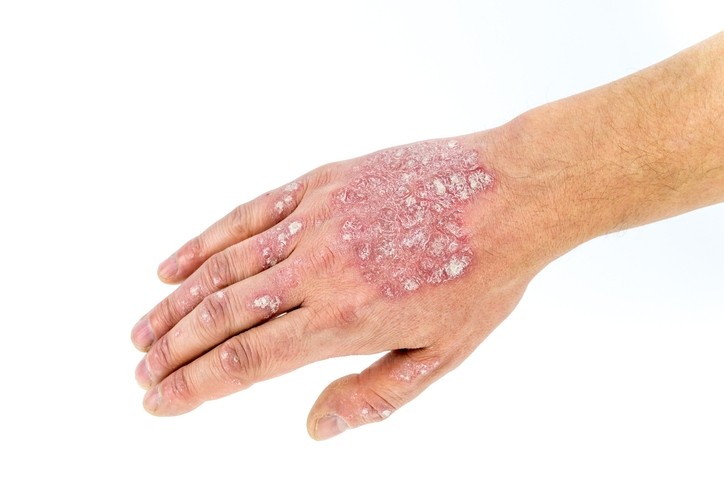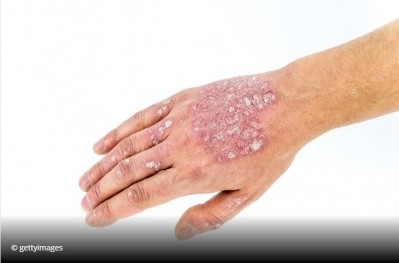Microbiome make-up linked to risk of leaky gut in people with psoriasis

Previous research has found that the composition of bacteria in the human gut fall into three main patterns, known as enterotypes.
Using 16s rRNA sequencing to analyse the microbiome of 52 psoriasis patients, scientists identified a core psoriatic gut bacteria composition that was significantly different to that in healthy individuals.
Psoriasis patients displayed increases in Faecalibacterium and lower Bacteroides, discovered the research team, a collaboration between multiple institutions based in Spain.
Writing in Scientific Reports, the researchers also found that patients classified as belonging to enterotype 2 (characterised by lower Bacteroides, with a predominance of Prevotella) had a much higher likelihood of (‘leaky gut’) than other enterotypes. Gut permeability is associated with higher inflammatory status and enables bacterial translation (BT) into the bloodstream, explained the researchers.
“The study of the gut microbiome and enterotype shows from the first time a specific ‘psoriatic core intestinal microbiome’ that clearly differs from the one present in healthy population,” commented co-author Dr. Empar Chenoll from Biopolis S.A, Valencia Spain, a division of ADM.
“We have seen that psoriatic microbiome was more diverse than healthy population, showing an increase presence of genus Faecalibacterium and a decrease of Bacteroides, which have been previously associated with inflammation and different skin disorders.
“Analysing differences within different enterotypes, our results suggest that psoriatic patients with a relevant presence of Prevotella in the intestinal microbiome (enterotype 2) and lower ratio of Bacteroides/Faecalibacterium, can be more prone to BT,” added Chenoll.
Psoriasis linked to ‘leaky gut’?
“It has been seen previously that psoriatic patients tend to have significantly more bacterial translocation than healthy people. Basically, the intestinal microbiota together with the mucus layer and the immune system control pathogen translocation in a healthy state. In a situation of dysbiosis, however, these mechanisms can fail and lead to translocation,”explained Chenoll.
Comparison of patients with and without BT did not identify a specific bacterium as the cause of the translation process.
In fact, the researchers suggested that BT might be caused by multiple species.
“Results suggest that bacterial translocation in psoriasis is not induced by one specific microbial group; the event probably is caused by a microbial imbalance among different groups in [the] gut,” Chenoll added.
Significance
Previous work has suggested that flare-ups in active plaque psoriasis may be related to the presence of circulating bacterial DNA in blood, resulting from translation through the gut wall.
Study findings suggest that analysis bacterial composition in stool samples for could be used to predict BT and the strength of inflammatory response. Detecting BT could also play a role in the choice of treatment and help predict the patient’s response, the researchers proposed.
“It has been previously reported that BT boosts the pro-inflammatory response, promoting skin inflammation, and consequently these patients may require a more aggressive treatment. Therefore, the detection of BT could play a crucial role in a patient’s response to treatment,” wrote Chenoll.
Results of this study and previous work suggest that healthy intestinal bacteria may be important in reducing intestinal permeability and the risk of BT, and may enable development of future treatment strategies for treating psoriasis, the scientists proposed.
“The microbiome differences found here are the first step towards understanding the complex ecological dynamics that are happening in the gut of psoriatic patients. A probiotic blend specifically designed to balance the microbiome of psoriatic patients is in the pipeline for further investigations and applications,” Chenoll concluded.
Source: Scientific Reports
Volume 8, article no: 3812, doi: 10.1038/s41598-018-22125-y
Gut microbial composition in patients with psoriasis
Authors: Francisco M. Codoñer, Vicente Navarro-López, Empar Chenoll et al















